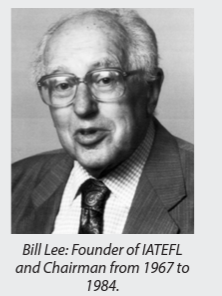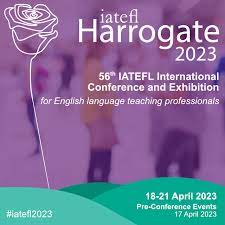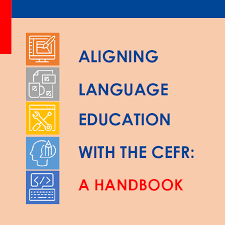
Introduction
In a recent tweet, I remarked
ELT conferences are upon us. Who will challenge coursebook-driven ELT? Or the grip of high stakes tests? Or the precarity, low pay, & bad conditions of teachers’ jobs? I bet real issues are ignored while everybody babbles on about translanguaging, teacher identity, bla bla bla
I added:
Questions for ELT conference goers: Who wins and who loses in the current $200 billion ELT industry? What say did you have in the programme? How do the plenary speakers address issues that directly affect you? Why is the Exhibition Hall the real hub of the conference?
and
Advice to ELT conference goers: there’s an inverse relationship between the value of a presentation and the size of the room it’s in.
I’ve just had a look at the IATEFL Conference 2023 programme, and I’m sorry but not surprised to say that there’s little on offer to challenge my cynical prediction.

IATEFL’s Big Mistake
The founder of IATEFL, Bill Lee (a real tyrant in many ways, as Rixon & Smith’s (2017) excellent A History of IATEFL makes clear) had very fixed views about what the conference was for, viz: to get leading figures in ELT together to talk to colleagues and engage in open discussion of the best ways to teach English as an L2, and he fought hard against interference from commercial concerns, insisting that they should be limited to a display on tables in the foyer of relevant books. The first time that presentations on behalf of publishers were admitted to the programme was in 1983. When Lee was finally ousted in 1984, the floodgates opened, so that nearly forty years later, in Harrogate next week, publishers and other commercial outfits rule the roost. They sponsor a significant proportion of all the presentations that take place in the big auditoria, and the Exhibition Hall is the hub of the whole damn show.

The ELT Hydra
The 2023 IATEFL conference is, yet again, a showcase for commercial interests. As I’ve argued many times, the $200 billion ELT industry is an inter-locking hydra composed of publishers, teacher trainers, course providers and examination boards. All four heads of the ELT hydra focus on selling products, which has led to reification – mistakenly changing abstract ideas into something real that stands in their place. For example, proficiency is changed into the CEFR scale. The abstract idea of language learning is changed into products for sale.)
The products of ELT are:
- coursebooks and related materials;
- training courses like CELTA and DELTA, and CPD courses offered by a host of teacher educators;
- EFL/ ESL courses like those offered by private outfits (International House, the British Council, Berlitz, etc.) and public schools across the world;
- Exams such as the IELTS, the Cambridge suite and TOEFL.
All these products wrongly assume that knowing things about the L2 (e.g., in English, to form the 3rd person singular of the present tense of verbs, add an “s” to the infinitive) leads to the ability to use this knowledge for practical purposes. But teaching students about the L2 doesn’t lead to an ability to use the L2, as shown by the experiences of the billions (sic) of students who have been taught about an L2 and who end up, after hundreds of hours of instruction, incapable of using it for any communicative purpose.
SLA scholars today agree that people learn English as an additional language through a process of interlanguage development and that this process depends fundamentally on unconscious, internal mental processes. Given the right opportunities – rich input and communicative exchanges – learners will work out for themselves how English (its grammar and lexis and pragmatics) works. Simply put: sixty years of research strongly suggest that learning an additional language is a matter of learning by doing, of using the language not treating it as an object of study. This suggests that current coursebook-driven ELT is inefficacious. Using a synthetic syllabus which treats the English language as an object of study and obliges teachers to spend most of classroom time talking about the language is fundamentally mistaken. Much more efficacious is to use an analytic syllabus, where the English language is treated more holistically and where students are given tasks which give them opportunities to communicate with their peers and their teacher, thereby acquiring the procedural knowledge required to “do” English, not just demonstrate their knowledge about it.
The difference between a synthetic and an analytic syllabus is hugely important. It isn’t just a question of emphasis – a bit more or less time devoted to so-called communicative activities, too often in the form of Initiation-Response-Feedback routines often beginning with display questions. No, it’s a true paradigm shift: a radical rejection of one type of ELT in favour of another completely different type, and it depends on respecting rather than ignoring everything we know about how people learn an L2. Coursebooks use synthetic syllabuses which ignore robust research findings. Why? Because synthetic syllabuses are the perfect vehicle for packaging a course of English and selling it for the biggest profit. Coursebook-driven ELT commodifies language learning. It pushes relentlessly towards the packaging and sale of products like coursebooks, teacher development courses, English courses, and exams which are judged by commercial, not educational, standards. It rides roughshod over what we know about language learning. Even judged by the declining standards of education today, current ELT is rightly seen as a pariah, an inefficacious disgrace to research-driven education.

Harrogate
Back to the IATEFL 2023 conference. What’s it about? Well, while there’s no over-arching “theme” in the title this year, the programme in general and the plenaries in particular suggest that the organisers have caught the zeitgeist – it’s all about you and your myriad identities, not forgetting everybody else and their myriad identities. In trying to be the best “you” that you can possibly be, how do you resolve the fluid and contradictory, socially-constructed yet deeply individual ideas you have about your various identities, including that of teacher, while respecting the equally complex struggles everybody else has with similar problems? What is your story? What are their stories? Is there a narrative that makes sense of it all and is that narrative capable of impacting on teaching praxis, going forward? To take the most pressing problem: What are some of the more inclusive, multi-self-affirming uses of personal pronouns likely to be found in the 2024 edition of Headway Intermediate?
OK. So here comes a summary of what awaits the 5,000+ teachers who will attend the awful show.

The plenaries
*** Evan Frendo. English for the workplace – looking for new answers.
Adjust your identity to suit Big Business.
*** Divya Madhavan. Lean on me: stories of coaching, mentoring and teacher resilience.
Teachers need help with identity. How to be a coach and mentor that fixes the problem.
*** Lesley Painter-Farrell. Sharing words and worlds: ESOL teachers as allies, advocates, and activists.
How to support teachers in navigating and addressing their learners’ linguistic, social, and emotional identities, sorry, needs.
*** Ofelia García. Translanguaging and teaching English as a foreign language.
How two EFL teachers have developed a “translanguaging juntos” stance. How the opening up of translanguaging spaces within EFL instruction enables students to act in English without giving up their identities.
*** Awad Ibrahim. Race, popular culture and ESL in a post-George Floyd moment
We must engage race and pop culture in our ESL classrooms.

That’s it. Note that none of this does anything to encourage teachers to challenge the fundamental ways in which they do their jobs (i.e., the syllabuses and materials and assessment procedures they work with), or to demand better contracts, pay and conditions.

The presentations
Here are a few of the presentations that will take place in the biggest room in the conference: the Auditorium of the Convention Centre, 550 audience. I list enough to give evidence for my claim that commercial interests pervade and that there’s little that challenges current ELT practice.

Herbert Puchta, promoted by Cambridge University Press, talks about assessment and promotes his book Think.
A promotional spiel. His book’s called “Think”? Really?

Rod Bolitho and Alan Maley talk about the personal qualities of great teachers.
Two old timers shoot the breeze. This is a session I’d happily attend. Alan used to be quite radical, now he’s an IATEFL treasure. Hey ho. .

Steve Copeland, funded by British Council, presents the findings of a research project which aims to identify key trends that will define the role of English as a global language in the future.
Why sit there? Just read the report. It’s out next week and deserves careful reading. The BC is a snobbish, right-wing, profit-crazy outfit with a very uncertain future.

Penny Ur (Retired) reviews recent research. One of the advantages of being retired, Ur says, is that one has more time to browse through recent books and journals in search of interesting research studies. In this session, she’ll share some of them and discuss “the possible implications for practice”.
In previous posts on this blog I’ve made my view clear: Ur is a bad intermediator, a poor conduit, between teachers and researchers. Among the things that Ur has told teachers are these gems:
- “There is no evidence that TBLT works.”
- “Pienemann’s teachability hypothesis has only very doubtful implications for teaching.”
- “Researchers have very limited or nonexistent teaching experience so their ideas on the pedagogical implications of their results may not be very practical and need to be treated with caution”.
- It’s certainly possible to write helpful and valid professional guidance for teachers with no research references whatsoever”.
There’s a long list of researchers, including Doughty, Long, Pienemann, Nunan, Richards, Rogers, Skehan, Foster, Cook, Crookes, Alright, Schmidt, Robinson, Reves, Medgyes, Prodromou, Norris, O’Neil, Mackey, Munoz, Lewis, Li, Jenkins, … the list goes on, who have ample teaching experience. Furthermore, there’s an obvious non-sequitur involved. Even if Pienemann had never set foot in a classroom, his Learnability Hypothesis, and the derived Teachability Hypothesis should be evaluated by appeal to rational argument and evidence, not by appeal to worn-out clichés about the nontranferability of good old, down home teacher experience. The teachability hypothesis has screamingly obvious implications for teaching (the clue’s in the name, as they say), and it’s typical of Ur that she should so airily dismiss them.
Nowhere in any of her published work has Ur attempted to describe and evaluate arguments and evidence from academics whose work challenges her own traditional approach to ELT, and nowhere does she encourage teachers to engage in any serious criticism of current coursebook-driven ELT practice. I have seen nothing published by her that addresses any of the major issues currently being discussed by sociolinguist or psychlinguists in the field of SLA. Her best-selling book “A Course in English Language Teaching” is devoid of even the most rudimentary discussion of SLA research. That Ur should be chosen to review research (again!- I seem to remember that she gave a hopeless review of research in a plenary at a previous IATEFL conference many years ago) is an indication of how little regard the IATEFL organisers give to the academic credibility of their favorite speakers.

Samuel John Williams, promoted by Black Cat Cideb, explores how to use social media videos as a valuable lesson resource with Black Cat readers.
Pure promotion. I bet it’s slick.

Nathaniel Owen and Colin Finnerty, promoted by OUP, report their experience in using the new Handbook for Aligning Language Education with the CEFR (2022).
It’s not surprising that it takes two clever chaps from OUP to help the average Joe to make sense of a Handbook that attempts the impossible.

Hugh Dellar, representing his company Lexical Lab, takes us “Beyond the native-speaker paradigm”. He’ll suggest that ideas such as ‘British’ or ‘American’ English are “simply constructs” and that the reality is both more complicated and more liberating. The classroom implications will be explored.
The view that native speakers of English are the best source of information about how English is used is not a paradigm. And the claim that British and American English are “simply constructs” suggests that Dellar doesn’t know what a construct is either. In this, his latest opportunity to finally get the better of his notes on the big stage, Dellar will surely delve, yet again, into his already well-plundered treasure trove of lexical chunks to showcase twenty or so more of them. At least he can be sure that everybody in the audience is likely to be equally baffled, regardless of their L1, dialect, sociolect or idiolect.

*** Jeremy Harmer and Jane Revell talk about “Silence and noise: modes of being in the classroom.” They promise to explore the advantages and disadvantages of both, using examples from the second edition of Revell’s coursebook American Jetstream.
As with Penny Ur, I’ve done a number of posts on this blog about the work of Jeremy Harmer, who is, in my opinion, in a class of his own when it comes to making a career out of what in yiddish is called “chutzpah”, and what in cockney is called “front” (as in “Ronnie had more front than Harrods”). He’s the Boss of Bluff and Baloney, the High Priest of Hogwash. Surely the award for the worst presentation ever made at an IATEFL conference must go to Harmer for his 2015 talk “An uncertain and approximate business? Why teachers should love testing”. Click here to watch the video. A Spanish colleague of mine told me that he felt such “vergüenza ajena” (embarrassment for another) watching Harmer perform in a video that he crawled under the bed. After another car crash of a presentation in Armenia in 2017 (he looks like he was in a car crash an hour before he walked on stage), I thought we’d seen the last of him, but he’s back, and, of course, he’s in the biggest capacity room of the conference.
His co-presenter is Jane Revell, who tells us that she is “a very well-known and highly-respected international trainer and consultant”, and also a “Master Practitioner in NLP (Neuro-linguistic programming)”. Twenty years ago, NLP was quite popular in some ELT circles. Revell, with co-author Susan Norman, wrote several articles and two books, the first called “In Your Hands: NLP and ELT” (1998), and the second called “Handing Over: NLP Activities for language learning” (1999). Thanks particularly to Russell Mayne, who gave a very well-received and influential presentation in a small room at the 2014 IATEFL conference, NLP has now been thoroughly discredited, condemned as useless and even dangerous for ELT, and thrown into the dustbin of history, where it belongs. It is classic pseudoscience. “It masquerades as a legitimate form of psychotherapy, makes unsubstantiated claims about how humans think and behave, purports to encourage research in a vain attempt to gain credibility, yet fails to provide evidence that it actually works. ((Roderique-Davis, 2009, cited in Mayne, 2017, p.47). Subsequent editions of Richards and Rodgers’, Scrivener’s, and Harmer’s best-selling “How to teach” books all quietly dropped any mention of this bogus nonsense.
So the Harmer and Revell session should be a real treat, if you’re into the theatre of the absurd and have a ghoulish sense of humour.

Conclusion
I hope these examples are enough to persuade you that whatever delights are on offer at the IATEFL 2023 conference, a serious challenge to coursebook-driven ELT is not among them. At least, not if you follow the crowds. Recall my tweet alerting conference goers to the inverse relationship between the value of a presentation and the size of the room it’s in. On the final day of the conference, at half past one when everybody’s having lunch, in Queen’s Suite 6 of Harrogate Convention Centre which can hold 43 people, Steve Brown will talk on “The profit motive: time to problematise capitalism in ELT?” His blurb says “While the merits of capitalism as a system of global governance face increasing scrutiny, capitalist principles remain highly prevalent in ELT, with profit-orientated organisations heavily influencing our teaching practice, materials content and assessment. This talk questions the role of the profit motive in ELT, explores its negative impact, and calls for a re-assessment of priorities within our profession.” Steve is a great speaker, has more to say than all the speakers I’ve mentioned above put together, and I’m sure that everybody who attends his talk will get lots from it, not least a feeling of shared solidarity. A detailed search through all the talks going on in similarly small rooms at awkward times might well turn up enough good talks to make the trip worthwhile.
Brutal 🙂
Truthful more than brutal. Have attended, and presented, at a couple of conferences (not the same two) but must admit that 1) I got more from the informal chats during the coffee/ lunch breaks with fellow teachers (pleasant memories of the lunchtime we spent together in Barcelona) than from the talks. With hindsight (we are, after all, expected to reflect on what we deliver), I don’t think I passed on much to those attending my sessions.
It may well be, that after so many years teaching, I no longer have time, nor patience, for those who do not support their findings with research.
As you said, Geoff, nobody is talking about the working conditions and pay of EL teachers -or of any language teacher, as a matter of fact- and I find that really bad considering what has happened to a number of friends and former colleagues. Many of them have found themselves out of a job because important private language teaching providers decided it was time to shut down the business or to take on less qualified and experienced teachers in order to get punters to pay more but pay the teachers less or give them sh***y contracts.
It’s appalling.
Thanks for this, Gemma. I completely agree with you – it’s the informal chats with fellow teachers, the social events, meeting old friends and making new friends in the pubs and restaurants that one remembers.
I should have said more about IATELF’s stubborn refusal to allow its members to form a SIG, or to discuss in presentations (let alone plenaries!) the worsening precarity, pay and conditions of most EL teachers. Paul Walsh tried to get a Teachers as Workers SIG together but was thwarted. His blog https://www.teachersasworkers.org/author/paulio/ is a good forum.
Hi,
First time poster, long time reader. I thoroughly enjoy reading your blog. Admittedly much of this goes above my head as I have rudimentary knowledge of SLA. However, as a disillusioned English language teacher I believe it is worth knowing more about. My current malaise comes from what I am asked to do at the institute where I work compared to what I choose to do with my private students and I identify with a number of the topics you write about.
I do have a question.
You write about how a synthetic syllabuse is the perfect vehicle for packaging the language as a product. Why would it not be possible for publishers to promote an analytic syllabus and for teacher trainers, course providers and examination boards to adopt a TBLT framework to what they do whilst still pursuing maximum profits?
I must be missing something. Pre-service courses that focus on TBL (not PPP), Coursebooks that do not compartmentalize the language and exams that test what learners can do with the language sound plausible to me.
Assuming that the current way of doing things is failing millions of learners and assuming that ‘Capitalism delivers the goods’ it seems strange to me that companies with the financial clout, profit motives and undoubted access to and knowledge of SLA research from the last 60 years have not made a serious go (to my knowledge) of trying something different.
Josh
Hi Josh,
First, capitalism doesn’t actually “deliver the goods” we need to live long, happy, healthy lives – it produces lots of stuff that isn’t fit for purpose and that is killing the planet. In the case of ELT, today, despite robust, compelling evidence from experts in language learning that coursebook-driven ELT is hopelessly inefficacious, commercial companies have such a powerful grip on consumer habits that they continue to persuade the general public that the best thing they can do, if they care about their jobs and their kids’ future, is to invest in the raft of dud products that Hugh Dellar, Jeremy Harmer, Jane Revell, Penny Ur, and the rest of them are selling at IATEFL this week.
Coursebook-driven ELT can’t easily be replaced by an approach driven by criterion-referenced preformance tests, needs analyses and analytical syllabuses because such an approach rejects a one-size-fits all assumption. The “beauty” of coursebook-driven ELT is that it sees language learning as a process of moving along a line from A1 (beginner) to C2 (Advanced) (as outlined in the CEFR) by doing courses designed for each “step”. This linear, step-by-step process is enshrined in high stakes exams and allows schools and institutions, public and private, to offer courses from A1 to C2, where a series of Coursebooks and added materials are used for each level.
I think the whole industry will crumble in the next 20 years, and people will look back in horror at the colossal waste of time and money that it’s entailed. Technology will lead to the disappearance of demand for basic language skills, and to the emergence of far more personalised courses, which will, I’m sure, rely on analytic syllabuses.